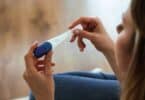
This information comes from researchers at the University of Cardoba examined the possible relationship between lifestyle habits and sperm quality in men. In their most recent study, they examined the potential relationship between moderate exercise and sperm quality.
“We have analyzed qualitative semen parameters like the ejaculated volume, sperm count, mobility and sperm morphology,” said lead author of the study, Diana Vaamonde, researchers at the University of Cardoba.
Published in the European Journal of Applied Physiology, the study also examined the follicle-stimulating hormone (LH), testosterone (T), cortisol (C) and the T/C ratios of the 31 men who participated in the study. These levels help indicated the type of environment offered for sperm formation in the gonads.
“Despite the fact that the sample population is not very big, given the complexity of the analysis, this is the first study that assessed the differences between these parameters in both populations,” Vaamoinde said.
After analyzing the hormone levels and various factors that determine overall sperm quality, the researchers determined that men who were moderately active had better hormone levels. Additionally, the gonads of moderately active men had healthier spermatological processes.
However, it is also important to know that this same group published a previous study on the sperm quality of triathletes and waterpolo players. Their semen quality was found to be worse than those that were just physically active. Researchers speculate that the increased strain of training causes the decrease. Therefore, it may be important to not overdo exercise.
Related Articles:
- Three-Parent IVF Still Not Ready for Humans, Study Confirms
- Tdap Recommendations Change: Pregnant Women Should Receive Vaccine Every Pregnancy, Says CDC
- Weight Loss Does Not Improve Fertility, Study Says






